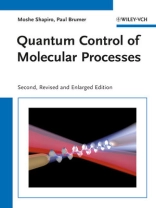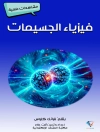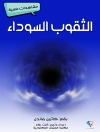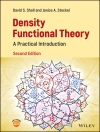Written by two of the world’s leading researchers in the field, this is a systematic introduction to the fundamental principles of coherent control, and to the underlying physics and chemistry.
This fully updated second edition is enhanced by 80% and covers the latest techniques and applications, including nanostructures, attosecond processes, optical control of chirality, and weak and strong field quantum control. Developments and challenges in decoherence-sensitive condensed phase control as well as in bimolecular control are clearly described.
Indispensable for atomic, molecular and chemical physicists, physical chemists, materials scientists and nanotechnologists.
Содержание
1. Preliminaries of the Interaction of Light with Matter
2. Weak Field Photodissociation
3. Weak Field Coherent Control
4. Control of Intramolecular Dynamics
5. Optimal Control Theory
6. Decoherence and its Effect on Control
7. Case Studies in Coherent Control
8. Coherent Control of Bimolecular Processes
9. The Interaction of Light with Matter: A Closer Look
10. Coherent Control with Quantum Light
11. Coherent Control Beyond the Weak Field Regime: Bound States and Resonances
12. Photodissociation Beyond the Weak Field Regime
13. Coherent Control Beyond the Weak Field Regime: The Continuum
14. Coherent Control of the Synthesis and Purification of Chiral Molecules
15. Strong Field Coherent Control
16. Coherent Control with Few-cycles Pulses
17. Case Studies in Optimal Control
18. Coherent Control in the Classical Limit
Subject Indices
Об авторе
Moshe Shapiro is a Canada Research Chair Professor on Quantum Control at the Department of Chemistry, the University of British Columbia, Vancouver, Canada. He received his BSc, MSc, and Ph D from the Hebrew University of Jerusalem.
Paul Brumer is University Professor of Chemistry and holds the Roel Buck Chair in Chemical Physics at the University of Toronto. He received his BSc from Brooklyn College and his Ph D from Harvard University. The authors are among the cofounders of the field of coherent control. They have published extensively on this and related subjects in chemical physics, and have received numerous awards and worldwide recognition for their research contributions.












